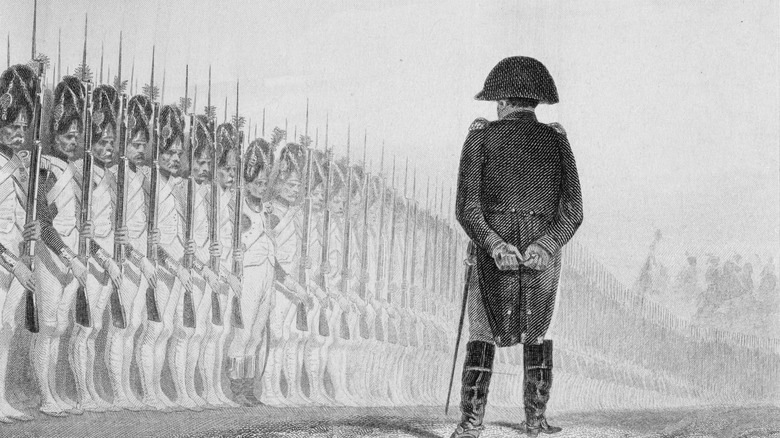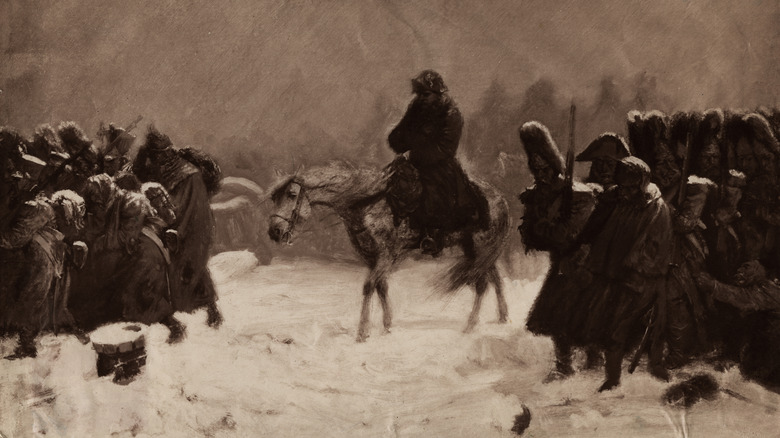Here's What Napoleon And His Grand Armee Really Ate
Napoleon Bonaparte's military and political conquests gave him direct and indirect control over much of Western Europe for years. From his 1797 victory over Austria to his final defeat at Waterloo, Napoleon was backed by the loyalty of his soldiers. The Grande Armee, as the French Imperial Army came to be known, followed its emperor through victory and defeat for years. Yet according to Exploring History, food was not as much of a motivating factor for the French army as one would believe.
French soldiers relied mainly on hardtack, a dense brick of flour known for its extreme longevity and lack of taste. Small amounts of salted meat, beans, or rice could generally be relied upon, while vegetables and fruit were rare at best. In order to meet their dietary requirements, French soldiers foraged extensively as they moved between locations. This did permit a degree of freedom from supply lines, but also led to immense disorder whenever food could not be found (via NPR).
The Grande Armee's supply chain was in need of reform
Depending on the campaign, the French military found itself plagued by not only starvation, but malnutrition and even scurvy. During the retreat from Russia in 1812, these factors were just as deadly to them as the cold or the pursuing Russians (via The Guardian). In the hopes of lessening the effects of inconsistent rations, Napoleon sought out alternative methods of food preservation and even offered a reward to anyone that could devise an acceptable technique.
One solution came in the form of a now-ubiquitous method of food storage, canning. Nicolas Appert had already been developing his process for airtight food preservation when he learned of Napoleon's request (via The Vintage News). While the Grande Armee never got the chance to make use of it, Appert did receive the prize money for his invention in 1810 after it was found satisfactory. France experimented with canning during and after Napoleon's defeat, and in the following decades, it became more and more widespread across the world.

